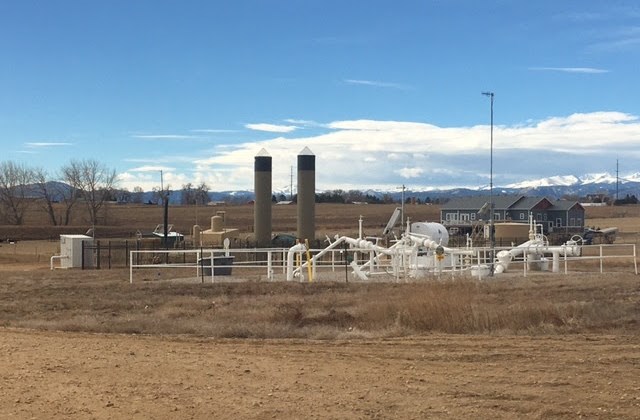A huge, sudden spike in methane and other volatile organic compounds near Union Reservoir last week was likely due to natural gas operations near the lake, according to environmental officials.
Oil and gas operators working directly east of Longmont will be notified of the event and complaints will be filed with the Colorado Oil and Gas Conservation Commission and Colorado Department of Public Health and Environment, according to a city of Longmont news release.
The jump was recorded Nov. 29 about 4:15 p.m. at the Union Reservoir air monitoring station by Longmont’s contractor, Boulder A.I.R. Detlev Helmig, owner of Boulder A.I.R., told the Longmont City Council last week that the Nov. 29 spike was the third highest methane spike recorded at the roughly two-year-old monitoring station.
The increase lasted for about 15 minutes before levels returned to normal, according to a city of Longmont news release.
The Nov. 29 and an Oct. 4 spike overlapped with work done at the Knight wells, located north of Union Reservoir, Helmig said, adding the increases were probably stoked by wind activity.
“The winds were steady coming out of the east and then slowly shifted south,” Helmig said. Longmont’s air quality monitoring stations are not designed to pinpoint exact sources of air pollution.
Methane levels were significantly elevated and the chemical signatures indicate that the source was likely natural gas. Benzene and toluene were also elevated; however, those compounds were not recorded at levels above the state’s health guidance values, the news release states.
The Knight wells were drilled between February and June 2021 and the hydraulic fracturing/completion phase of the Knight wells began in August and finished in mid-October, a city staff report to the council states.
The Knight wells are now in production, the staff report states. The Colorado Department of Public Health and Environment also collected data adjacent to the Knight Wells during development.
Data collected during the spikes near Union Reservoir are important in the air quality study being carried out by Boulder A.I.R and will also be shared with scientific and governmental groups that have expressed an interest, the city news release states.
Longmont has no jurisdiction over oil and gas operations near Union Reservoir since they are located outside of the city limits, the news release states.



